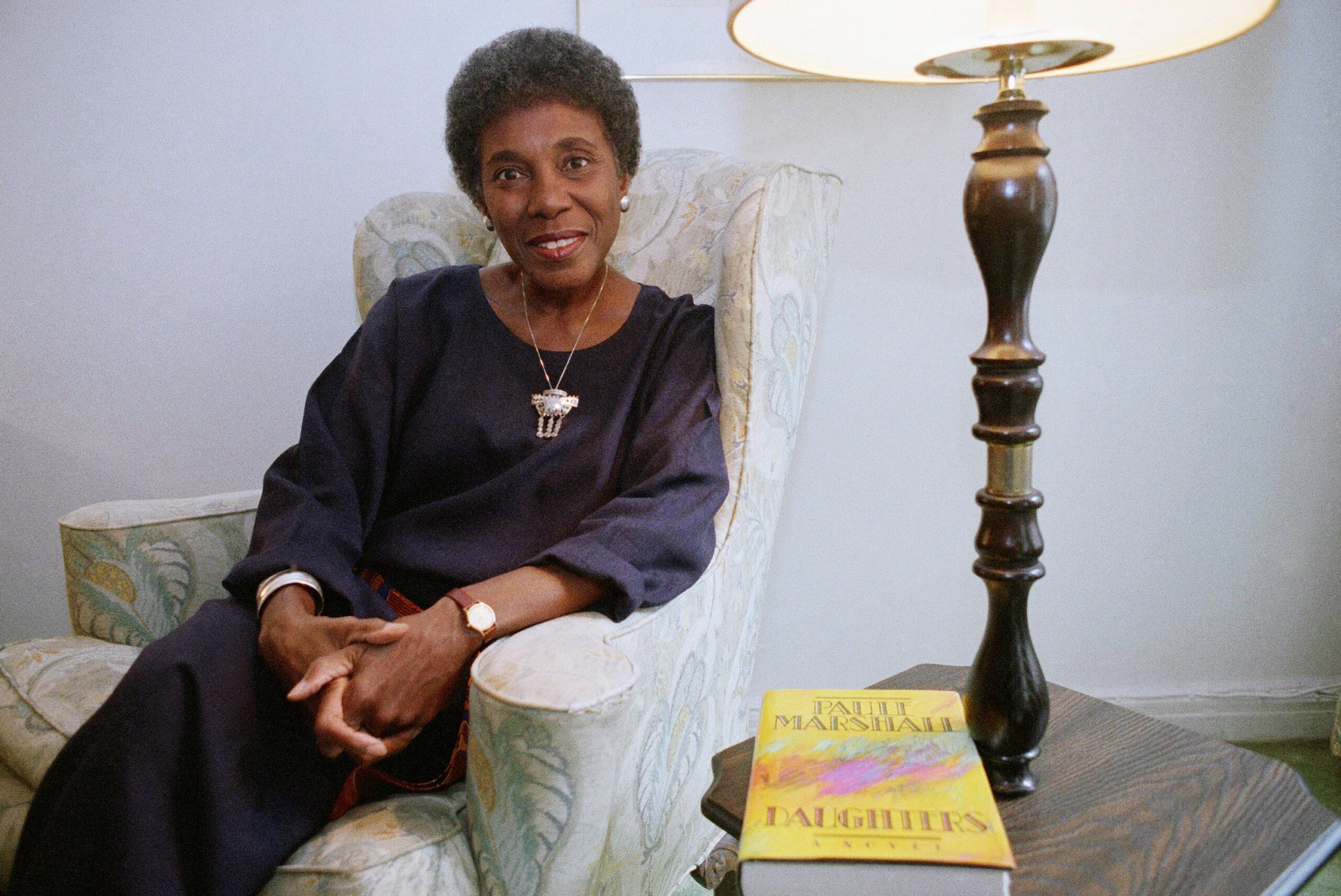“Heartbreaking news...Another beloved elder has crossed over,” tweeted two-time Pulitzer Prize-winning playwright Lynn Nottage on Thursday afternoon. On the heels of Toni Morrison’s death on Aug. 5, the beloved elder Nottage was referring to was author Paule Marshall, who died on Monday at age 90 in Richmond, Va., after a yearslong struggle with dementia, the Associated Press reports.
Suggested Reading
Born Valenza Pauline Burke in 1929 Brooklyn, N.Y., to Barbadian parents, Marshall hybridized her middle name in homage to Paul Laurence Dunbar (making the “e” in Paule silent) when she was just a preteen.
“What struck me then was that Dunbar had a way of capturing the Southern black dialect as poetry,” Marshall told the New York Times in 2009. “What I had been hearing in the kitchen of that brownstone house when my mother and her friends came together to have their coffee klatch was a kind of poetry in their West Indian dialect, the language that they had managed to mold out of what was imposed on them.”
Earning a Bachelor of Arts at Brooklyn College, followed by a master’s degree at Hunter College, Marshall began a career in journalism, writing for then-acclaimed African-American magazine Our World. That experience, coupled with her own multicultural upbringing, formed the basis for her first novel, 1959's Brown Girl, Brownstones, which as the Times noted, was “influential for the wave of black female writers that emerged in the 1960s and ’70s...ahead of its time in its focus on a female voice from an immigrant black community.”
“Africa, Barbados, Brooklyn—that’s the triangle that defines me and my work,” Marshall told the Times of her catalogue, which would later include the short novel anthology Soul Clap Hands and Sing (1961); The Chosen Place, the Timeless People (1969); Reena and Other Stories (1983); Praisesong for the Widow (1983); Merle: A Novella, and Other Stories (1985); Daughters (1991); The Fisher King: A Novel (2001); and her final published work, Triangular Road: A Memoir (2009).
“This is my attempt to get a fuller picture,” she continued, in reference to her memoir. “We need to see the triangular nature of our inheritance and our place in the world.”
“Paule Marshall does not let the black women in her fiction lose. While they lose friends, lovers, husbands, homes, or jobs, they always find themselves,” wrote Darryl Pinckney of Marshall in the New York Review of Books in 1983, as her first novel, 1959’s Brown Girl, Brownstones, was being reissued. “In exploring the stages of black women’s lives, Marshall insists that the woman with enough nerve can win even when the deck is stacked and the other players are hostile.”
As Nottage noted, Marshall, who both introduced Nottage’s parents and was her godmother, also wanted to see black female talent win.
“She was the first champion of my work, telling my mother with gentle authority, ‘Just let her write,’ tweeted Nottage. “I wouldn’t be here without her.”
The loss of Marshall, who, like Morrison, was a profound influence upon generations of black female writers, is felt deeply by the literary community she in many ways helped birth.
“I was always, in a sense, trying to bring the family together,” said Marshall.
Rest in prose, beloved elder.
Straight From 
Sign up for our free daily newsletter.



